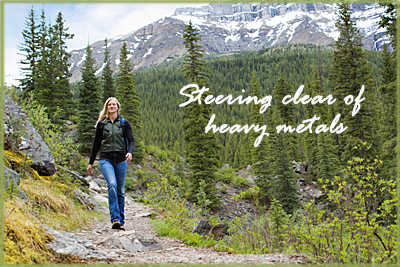
These days you probably hear the catch phrases “eco-friendly travel,” “green travel,” and “eco-tourism” quite a bit as early adopters in the travel arena try to set the ground rules for how the rest of us will eventually “green” this aspect of our lives too.
While the term “eco-tourism” tends to conjure up images of what some refer to as “volunteer vacations” where you might be involved in a beach clean up project or wildlife preservation program, you really don’t have to sacrifice comfort or go for an adventure in the wild to do it. There are as many different ways to green your travel, as there are ways to travel. It’s all a matter of degree and commitment.
The truth is that while these terms actually mean different things they all follow the same guiding principle: be mindful of your impact on the natural habitats and cultural environments that you visit. In other words, leave no footprint behind, respect the local cultures and customs, and wherever possible, make a positive contribution to the local communities.
If you want to green your travel then always keep this core principle close to your heart. And practice the 3 Rs inherent in any greening activities: Reduce, Re-use and Recycle. So what does that exactly mean when it comes to travel? Here are 5 tips to help you get started.
1. Maintain Carbon Neutrality. While you can purchase carbon offsets for a nominal price to assuage your guilt, one the best ways to minimize your impact is to take fewer plane, train, and car rides to get to your destination (i.e. fly non-stop as much as possible and map out the most efficient routes for road travel).
For shorter trips take the train instead of a plane. This works out well if you’re traveling in Europe where the train system is extensive, fast, and reasonably priced. If you must rent a car, try to rent a hybrid, electric car, or most fuel-efficient model available.
2. Use Public Transportation. Once you arrive at your destination, make a point of using the local or regional public transportation systems to get around as much as you can. Better yet ride a bicycle or walk. This also helps maintain carbon neutrality.
3. Reduce Energy Consumption. At home and on the go, there are numerous ways to lower your energy consumption. For example, at the hotel where you stay turn off lights, air conditioning, and appliances whenever you are out or not using them. Tell them that you would like re-use towels and sheets. Most larger hotels now enable you to let them know when you want or need the linens changed. At home unplug all unused appliances and keep critical systems like lights and sprinklers on timers for a minimal amount of time each day.
4. Think Global, Eat Local. While many of us are tempted to bring snacks and food from home along on our travels, try to get in the habit of leaving that stuff behind and enjoying local foods of the areas you are visiting. Become a traveling locavore –eat only foods that have been grown or produced within 100 miles of wherever you are on your travels. Choose regional foods, preferably organic and grown on a family farm or produced by a local business. This may take a little extra research up front to ensure you can find enough of a selection to suit your dietary needs and preferences. If you’re traveling to more exotic locales you might want to watch a few episodes of Anthony Bourdain’s TV show “No Reservations” for some ideas of where to go and what to try. Check your local listings for the Travel Channel.
5. Pack Light. There are many good reasons for packing just one bag chief among them is your increased mobility and flexibility on the ground, greater ability to walk or take public transportation, and lightening the overall load on a plane. Not only will this save jet fuel it will save you money in baggage check fees, excess weight fees and countless tips for all the porters and door people who handle your bags for you at every step of your journey.
Even travel connoisseur Rick Steves recommends you limit yourself to one carry-on bag no more than 20 lbs, and optimally one that fits under your plane seat as competition for those overhead bins just keeps getting stiffer all the time. His considerations are more practically motivated but ultimately have the same desired end-result.
Stay tuned for my follow up blog post on why this one thing alone can make a huge difference in helping you green your travel and some helpful tips on how to do it.
In the meantime, you can consult the Independent Traveler web site Green Travel Resources for ways to offset your carbon emissions and some choices for eco-friendly lodging.











